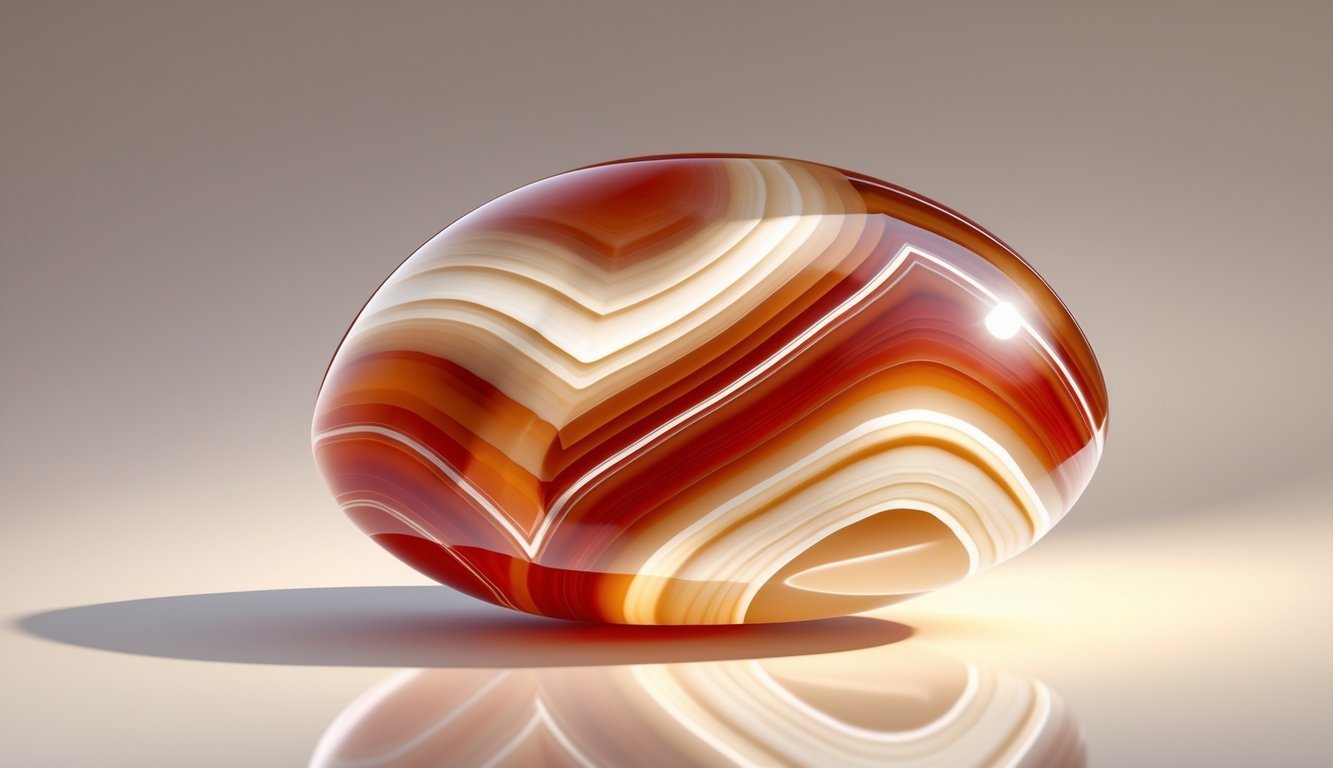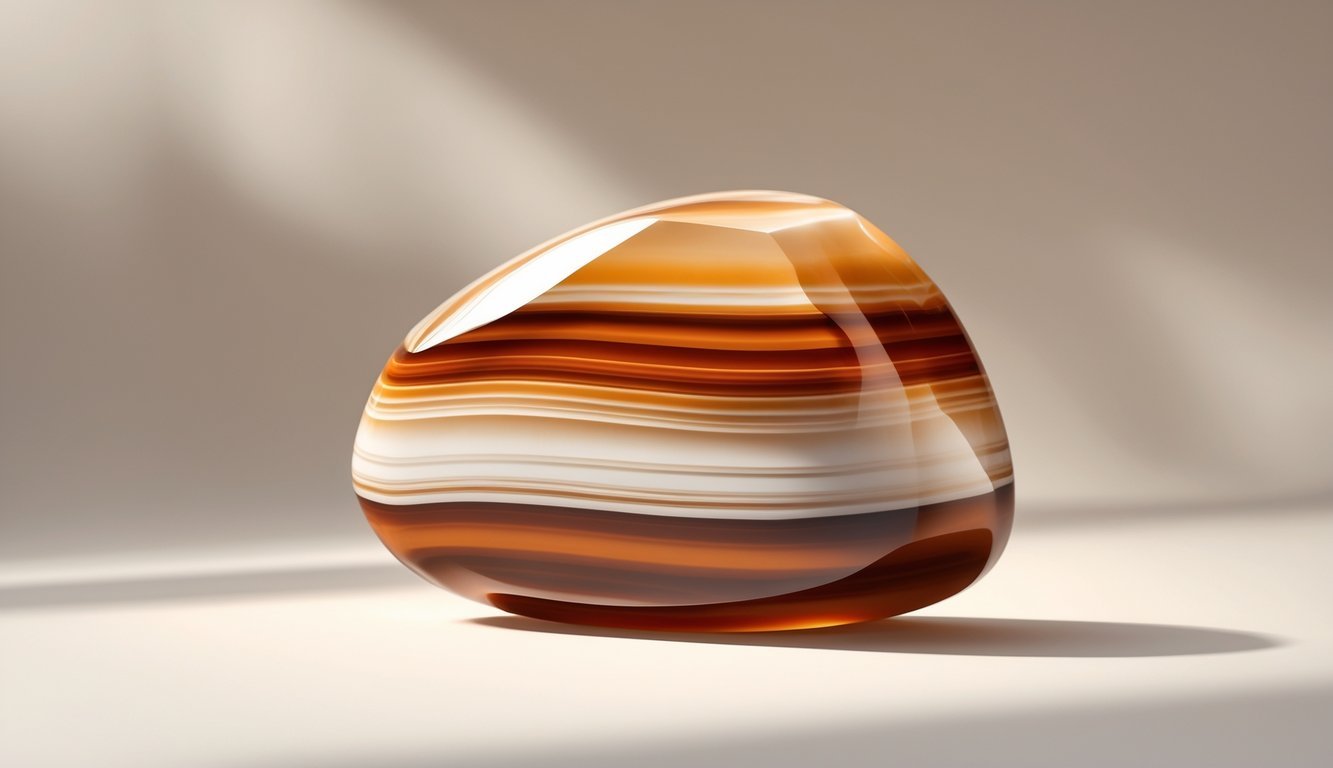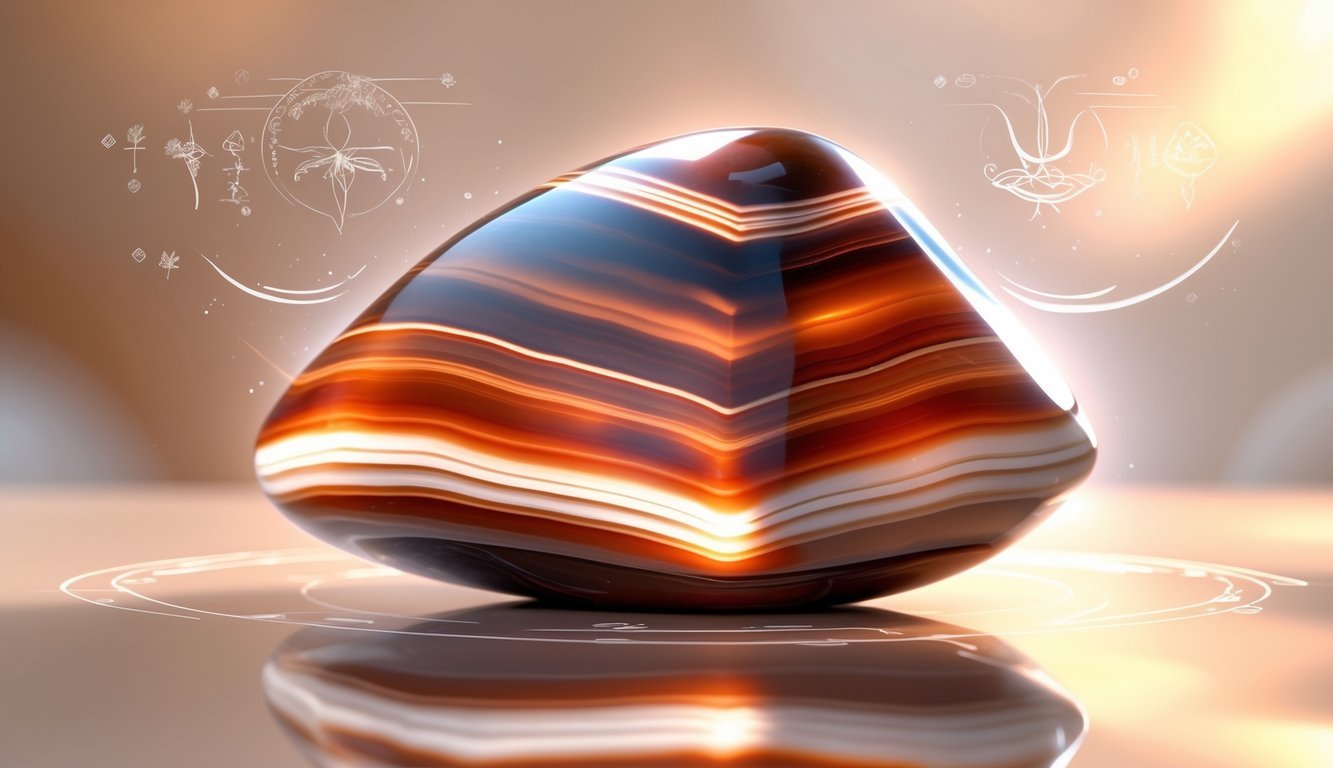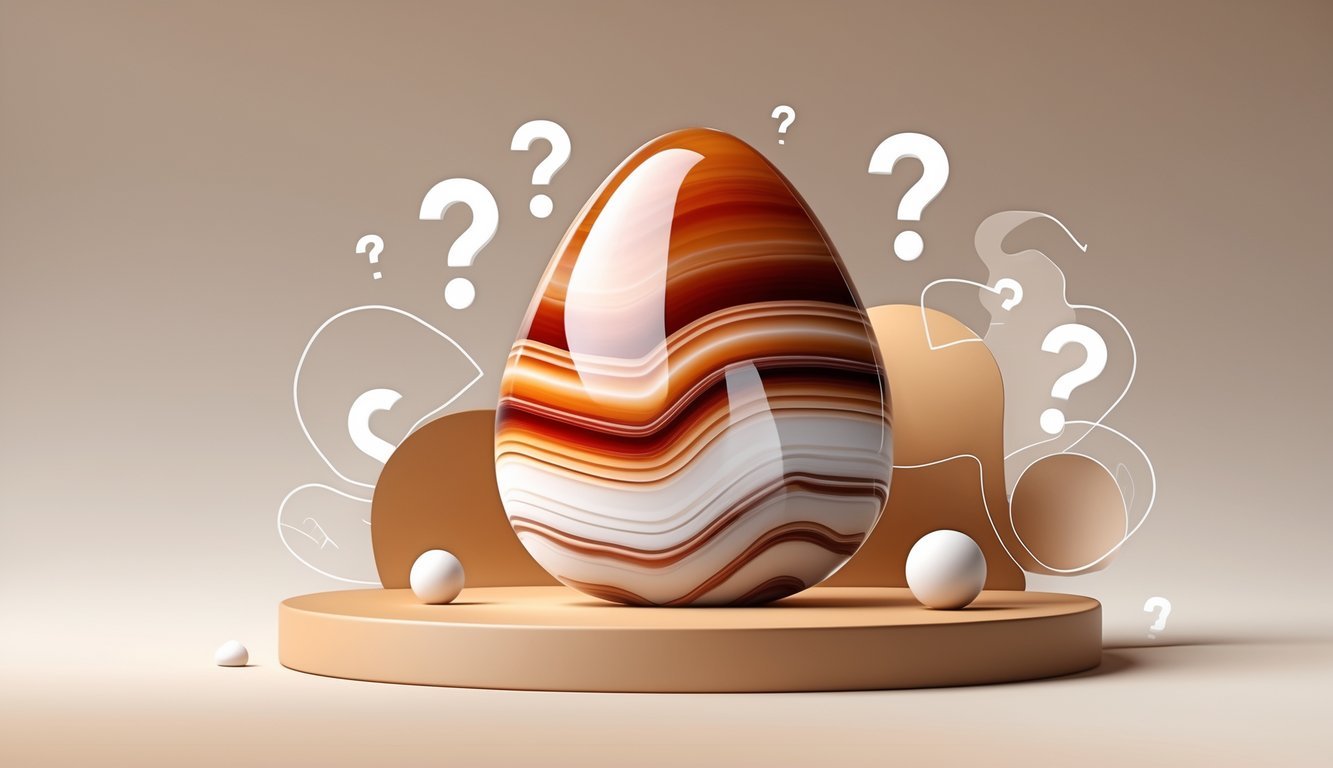PsychNewsDaily Publishers
100 Summit Drive
Burlington, MA, 01803
Telephone: (320) 349-2484
PsychNewsDaily Publishers
100 Summit Drive
Burlington, MA, 01803
Telephone: (320) 349-2484
Sardonyx is a banded chalcedony gemstone characterized by reddish-brown, white, and black layers, valued for its beauty, strength, and protective qualities in jewelry.

Sardonyx stands out as a gemstone for its bold bands of reddish and white layers. It brings together the best of sard and onyx, so you get beauty and strength when you wear it. There’s more to it than just good looks—people have tied it to protection, courage, and grounding energy for ages.
For centuries, jewelers and carvers have chosen sardonyx because of its vibrant style and toughness. If you’re curious about what it means or how folks use it, there’s a lot to dig into—maybe it’ll add something special to your collection or just your vibe.
You might want to know about its appearance, its backstory, or maybe even how it could affect your daily life. Sardonyx really has a lot going on.

Sardonyx forms from layers of different colors, and those bands of reddish-brown, white, and black really make it pop. Jewelers use it in rings, pendants, and sometimes carve it into smooth cabochons or tumbled stones.
You’ll find sardonyx as a type of banded chalcedony, which is a microcrystalline quartz. That just means it’s made of super tiny crystals you can’t see without a microscope. The bands run straight and parallel—usually reddish-brown (that’s the sard) with black or white (the onyx).
Sardonyx has a glassy, shiny finish when polished. It’s pretty tough, scoring a Mohs hardness of 6.5 to 7, so you can wear it daily without much worry. Its specific gravity is around 2.6, and the refractive index sits near 1.53 to 1.54.
Depending on the thickness and color of the layers, sardonyx can be opaque or a little translucent.
You’ll see a few types of sardonyx, depending on the band colors. The classic is black and white-banded sardonyx, which is everywhere in jewelry.
There’s also red sardonyx, where the reddish-brown bands really stand out. Sometimes you’ll spot brown sardonyx with softer, earthy tones.
Collectors and jewelry fans go for these stones because of the bold, natural color contrasts. Jewelers usually cut sardonyx into cabochons or polish it into tumbled gems for a smooth, rounded look.
The name “sardonyx” comes from Sardis, an ancient Persian city where it got popular. Romans and Egyptians loved it too, using it in seals and jewelry.
Today, you’ll find sardonyx from India, Brazil, Germany, and Uruguay. Other places like Madagascar, the United States, Turkey, and Slovakia produce some nice stones as well.
Each source gives sardonyx a slightly different look, depending on the local minerals. Knowing where your stone comes from just adds to its story.

People know sardonyx for strength, courage, and protection. It’s supposed to bring balance, willpower, and confidence, and some folks say it helps clear out negative vibes.
You’ll see it in everything from jewelry to ancient carvings.
Sardonyx has a reputation as a stone of strength and protection. Roman soldiers actually wore it for bravery in battle—how cool is that? The stone mixes energies linked to Mars and Venus, so it’s got this blend of courage and love.
It stands for stability and self-control, helping you stay grounded when things get rough. People also use sardonyx for peace and happiness.
Crystal healers believe it can boost stamina and sharpen focus, which might help you handle challenges.
The stone connects to the crown chakra, so some say it helps you tap into higher wisdom. Over the centuries, folks have respected it for bringing balance and positive energy.
Jewelers use sardonyx in beads, brooches, cameos, signet rings, and even intaglios. These pieces often work as amulets or talismans for protection and confidence.
Its translucent to opaque bands give each jewelry piece a unique flair. The mix of reds and whites adds charisma and style, and some believe it carries those metaphysical perks.
Ancient artifacts show just how much people valued sardonyx for both its beauty and supposed healing powers. Wearing sardonyx jewelry might help you set intentions and spark creativity, all while keeping a sense of calm.
To keep your sardonyx looking good, steer clear of harsh chemicals and don’t leave it in extreme heat. Sunlight works for cleansing, but don’t overdo it or the colors could fade.
Just use mild soap and warm water to clean it. Dry it with a soft cloth so the surface stays smooth and shiny.
You can recharge the stone’s energy by putting it in sunlight for a bit or keeping it near other cleansing crystals. That’ll help it hang onto its grounding and protective qualities.
Sardonyx is tough, but it can chip or scratch if you drop it or bang it against something hard. If you treat it well, it’ll stay a beautiful and powerful part of your collection.

Maybe you’re wondering how to figure out what sardonyx is worth. Or you want to know what it does as a birthstone.
Some folks get curious about its role in shows like Steven Universe. Others want to know about its healing properties, how it’s different from carnelian, or if it goes by other names.
Look at the quality of the bands, how strong the color contrast is, and the size. Stones with crisp, bold layers and deep colors are usually worth more.
If the stone doesn’t have cracks or flaws, that’ll bump up its value too.
People say sardonyx brings protection and helps with mental focus. Some believe it boosts confidence and eases stress, especially during tough times.
Just keep in mind, these are traditions—not proven facts.
In Steven Universe, sardonyx is a fusion character made from two other gems. She’s strong and wise, showing off teamwork and balance.
That lines up with what the gem is supposed to mean in real life.
Some folks think sardonyx helps with emotional balance and grounding. It might support mental clarity and help you feel less tense.
People use it when they want to feel more centered.
Sardonyx is a layered stone with bands—usually white, brown, or reddish stripes. Carnelian, on the other hand, is solid red or orange.
Both are types of agate, but they definitely look different.
People sometimes call sardonyx “banded onyx.” If the stone has carnelian layers, you might hear it called “carnelian sardonyx.”
These names really point to the unique bands and colors you’ll find in the stone.